Why are we shooting for the bare minimum when we could have optimal health?
Let’s play a game. If I told you you needed to get optimal levels of, let’s say, Vitamin D, E, A, B, as well as zinc, magnesium and selenium everyday, what would you put on your plate today to make sure that happened?
Ding, ding, ding! I know! What about the Recommended Daily Dietary Allowances (RDA) listed on most foods? Isn’t that the nutritional sherpa we need?
I suppose the RDA is helpful to help you avoid age old diseases like rickets or scurvy, but the RDA is not so relevant in a conversation about optimal health. RDAs are there to help us prevent deficiency diseases. It was invented for people on rations during WW2. It was never meant to suggest optimal nutrition, which is the amount of nutrients required to prevent chronic diseases like heart disease, cancer, osteoporosis, Alzheimer’s, etc.
In the last post I covered the fatal flaw in most diets, lifestyles, or eating programmes. We simply distract ourselves by focussing on the wrong destination. Usually it’s weight loss, but it can be other things too like gluten avoidance, ethics or the low RDA figures mentioned above. All of those things are good, but they don’t focus our attention on the critical end goal of optimal health.

What’s the number one priority for optimal health? It’s not calorie counting. Surprisingly, eating low nutrient foods fuels overeating behaviour which has lead to an obese yet malnourished population.
So what does a focus on optimal health look like?
Well first we need to quickly sweep aside some common misperceptions about what optimal health isn’t. Fat and obesity have dominated the discussion on health for far too long.
Optimal health is not low-fat
Everything we thought we knew about fat was wrong. The myth that saturated fat causes heart disease has been busted, and ample studies show us that dietary fat is not a major determinant of body fat. Fat is no longer the enemy. Dr. Frank Hu, professor of nutrition and epidemiology at the Harvard School of Public Health says “The country’s big low-fat message backfired. The overemphasis on reducing fat caused the consumption of carbohydrates and sugar in our diets to soar. That shift may be linked to the biggest health problems in America today.” Fat on our bodies does however give us a new problem to consider.
Obesity correlates with malnourishment
Low-fat diets often lead to obesity and obesity correlates with malnourishment. A calorie is a calorie is a calorie is something I’ve heard for decades, but it’s not true! Calories are not created equal. A New Zealand study of preschoolers found that while one-third were overweight or obese, 82 percent did not get enough dietary fibre and 68 percent did not have enough long-chain polyunsaturated fatty acids. So paradoxically we have great swathes of people over consuming calories and gaining weight, yet not getting enough nutrients (including fat!)
Optimal health is nutrient focussed
I wish eating were like a video game. It would be so much easier if we could have blinking fuel sensors on our arms that made whirring noises and flashed red when we needed to power-up! Queue robot voice: “Vitamin A: running on fumes, please consume a red pepper!” and “Brazil nuts ahead 20 paces, please refuel with 2 nuts to replenish selenium!” That style of eating seems futuristic however it’s precisely the way that you need to think to eat your way to optimal health.
A focus on maximising micronutrient levels per calorie is what you need to give yourself the best chance of avoiding and reversing disease. Dr. Joel Furhman provides a great explanation below on what he calls “nutritarian” eating.
“A Nutritarian diet is designed with food that has powerful disease-protecting and therapeutic effects and delivers a broad array of micronutrients via a wide spectrum of food choices. The foods with the highest micronutrient per calorie scores are green vegetables, colorful vegetables, and fresh fruits. For optimal health and to combat disease, it is necessary to consume enough of these foods that deliver the highest concentration of nutrients.”
What nutrient focussed eating mostly means to me is both adding more vegetables into my shopping cart and being conscious when I’m not eating them. I realised early into my nutritarian lifestyle that my vegetables were going rotten because I didn’t have plans to eat them. Now I make a nutrient rich shopping list each week based on recipes I intend to make. It takes the thinking out of weekday eating, and I know I will definitely get all the nutrients I need this week. Now when I meal plan I ask myself things like: “Do I have enough red and orange vegetables (vitamin A)? Am I getting enough nuts (vitamin E)?”
If I had to visualise what my eating program to reduce cholesterol and improve heart health looks like in non-nutrient, traditional diet terms, it would be something like this:
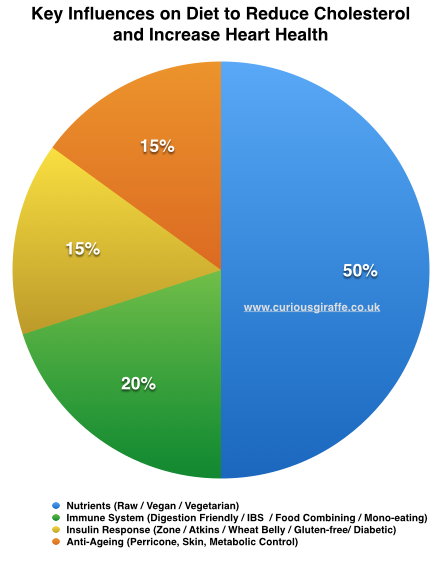
Visual of how some common dietary programs work together to create a holistic heart healthy eating programme. Of course many foods overlap in each diet, they all tend to reduce inflammation and provide nutrients etc., but this gives you a rough idea of how the various approaches work synergistically.
Of course the graph above doesn’t really make any sense. It’s a hodge podge of influences that are not mutually exclusive. Many of the nutrient rich foods that would fall into a pie piece above will fall into multiple categories. Kale for example does all of the above (except it can sometimes be hard to digest). But kale as a food is a great raw food, keeps your insulin at the right level, reduces cholesterol, creates beautifies skin… It’s a real all rounder. That food gets into my shopping basket often!
I look at eating the RDA nutrients levels to merely stay alive as my ’emergency eating plan’. In case of war, break glass. But for now I see our pantries as the most incredible pharmacies of possibility. Imagine what you could be eating to knock years off your life, avoid taking medicine, reduce joint pain, look gorgeous and feel incredible. This is hands down one of the best things I’ve discovered to improve my life, and I’ll be writing more about specific foods and nutrients for radiant well-being all year long.
Let me know if you think that optimal health is a good goal or if you feel it’s too OTT for most people. Does this approach make sense to you?



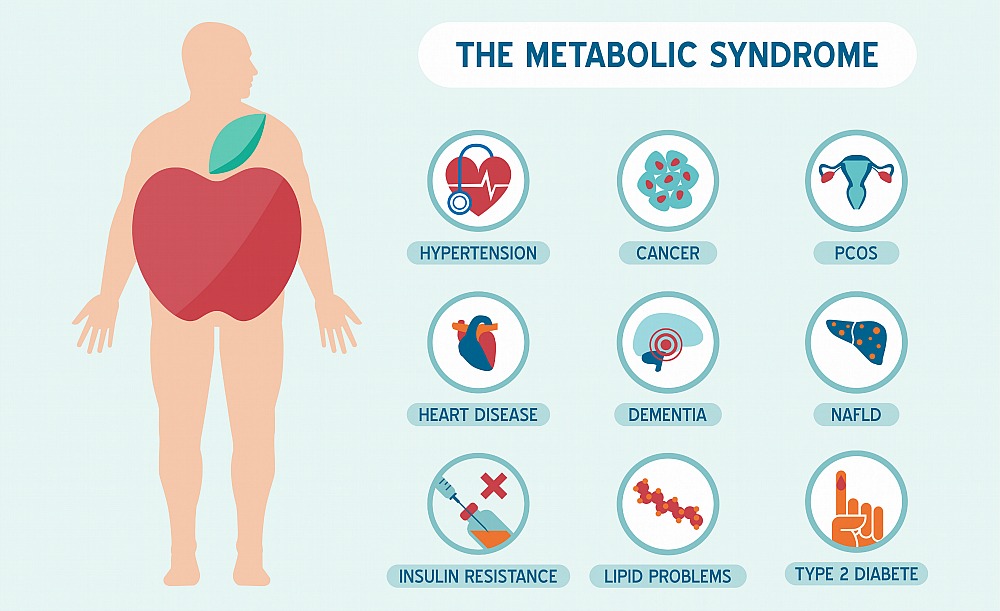

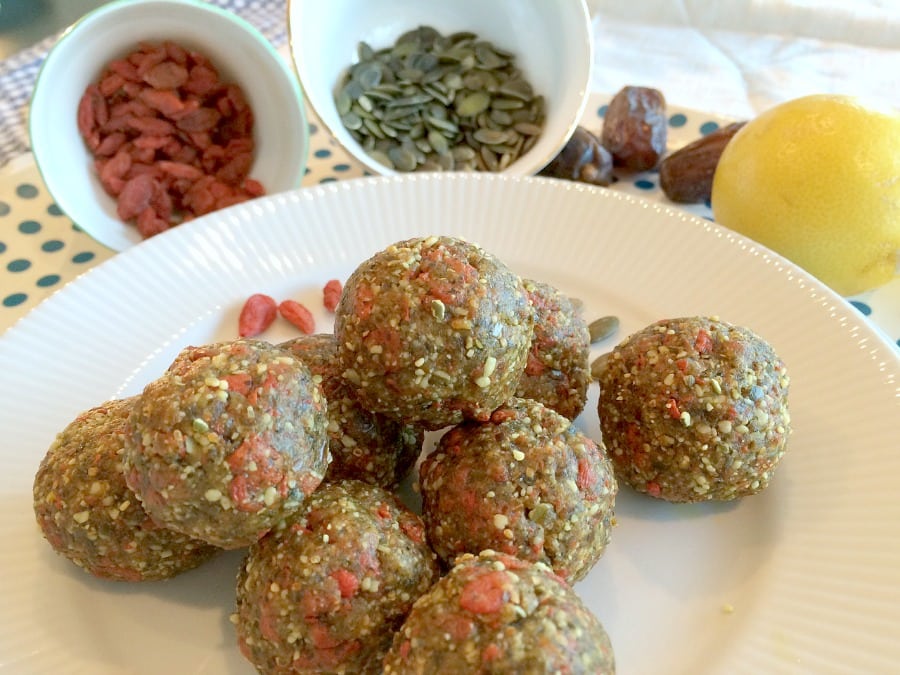
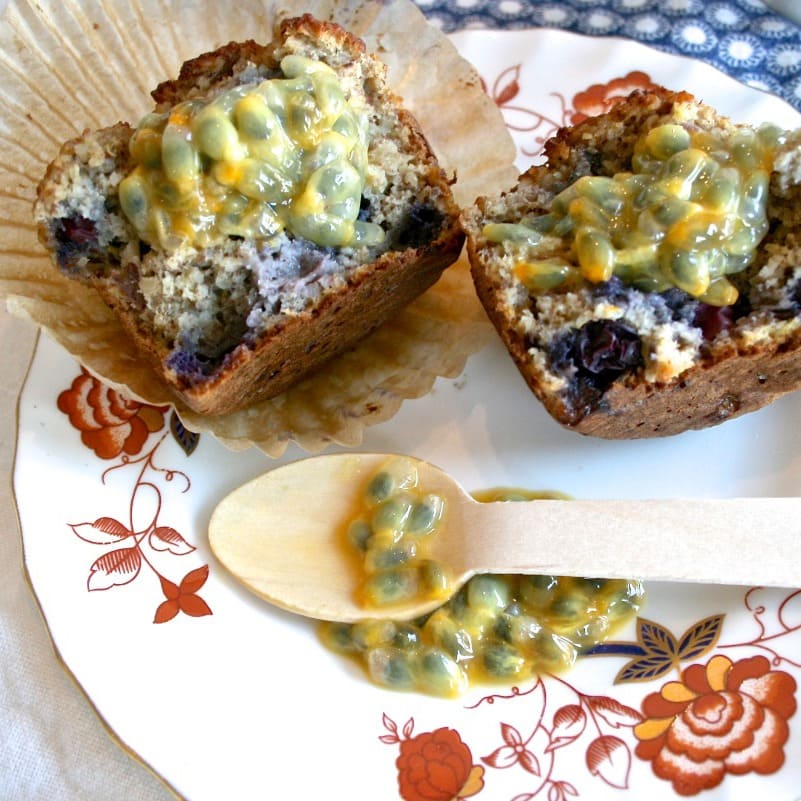
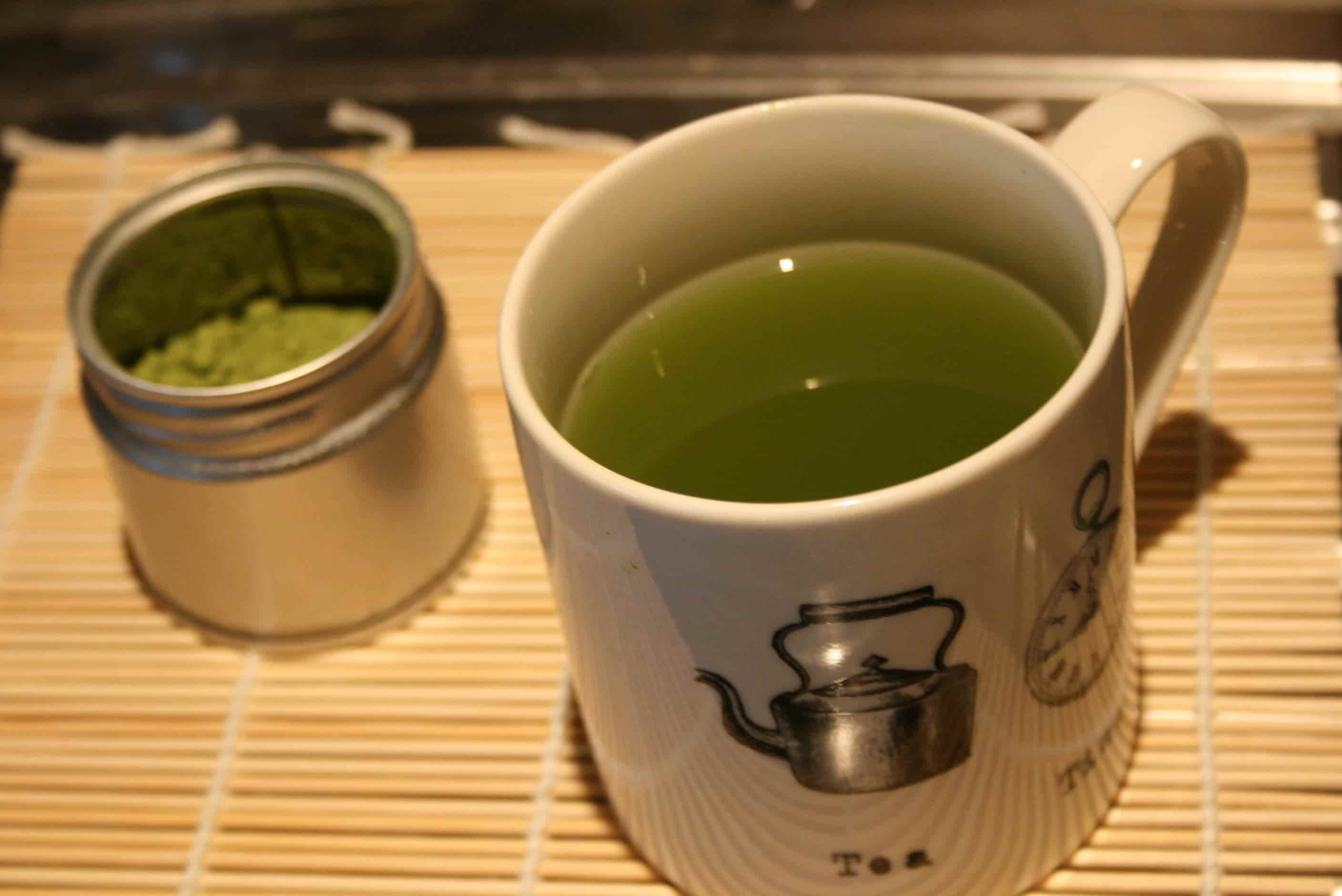
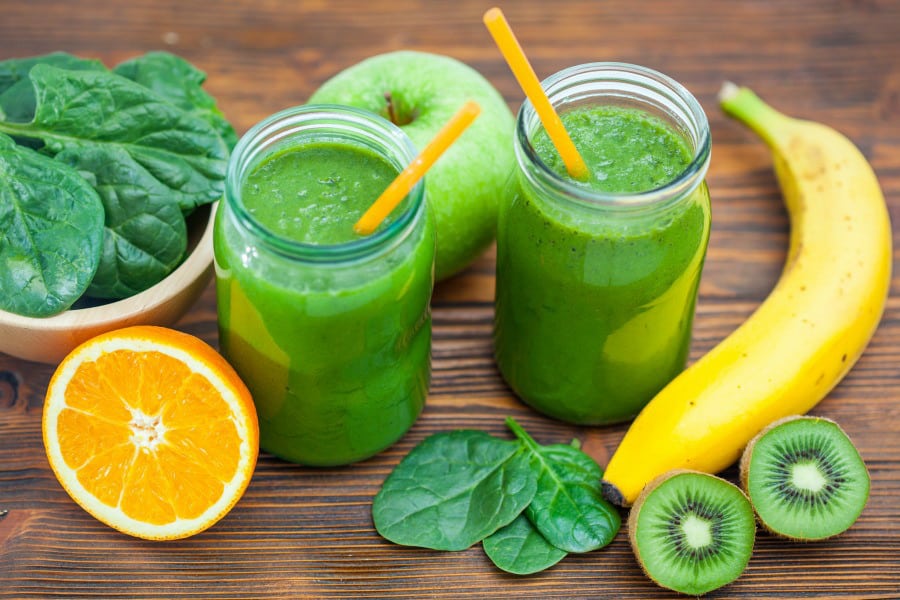
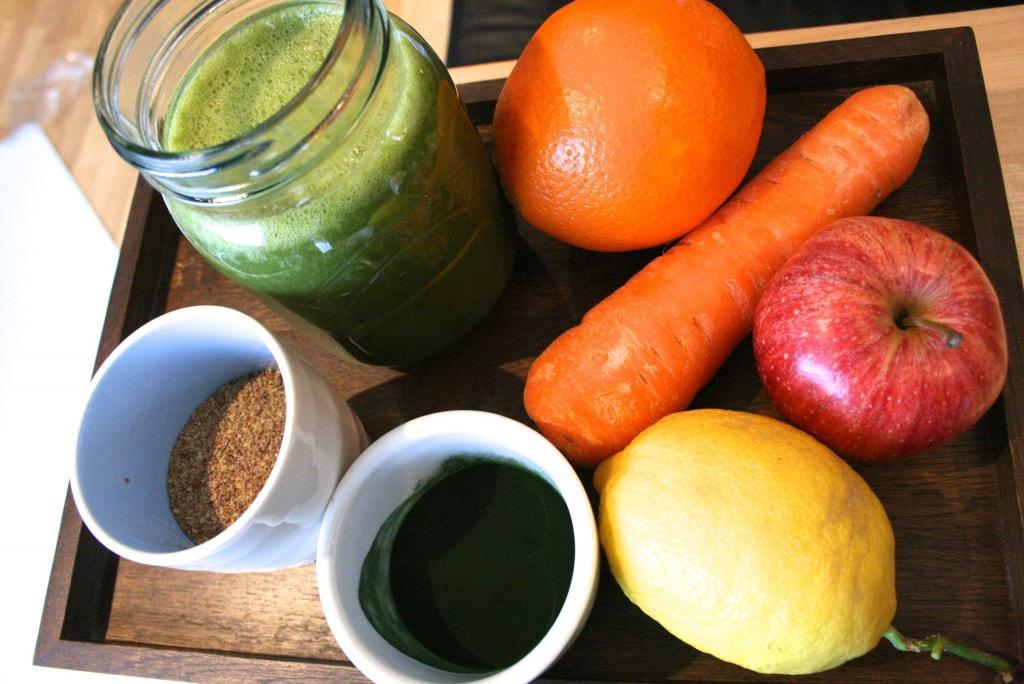
Leave A Comment